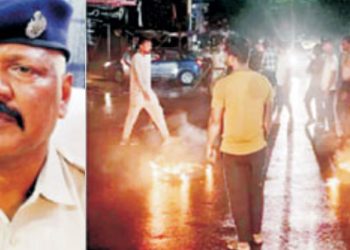The importance of stability can be estimated by the extent of problems prevalent in the country, whether they relate to the daily life of the common man, politics and the economy, or the security of the country. Solutions to all these issues can be implemented smoothly and effectively when there is an atmosphere and environment of political stability in the country.
For progress to take place, the environment and atmosphere must be conducive to finding solutions to problems gradually. If the environment is unfavorable and unhelpful, not only do the existing problems persist, but new issues also arise over time, adding to the complexity of the situation.
Looking at the national scenario, unfortunately, the prevailing situation reflects the same circumstances that have been ongoing for almost a decade. The current state of affairs is not a result of a single night; it is the consequence of prolonged political turmoil, intolerance, mutual antagonism, and seemingly unending political alignments.
About a decade ago, the country faced challenges, and the common people encountered difficulties one after another. However, it is also a fact that the volume of all these issues and challenges was comparatively lower at that time. One reason for this difference is that political instability and unrest were not as intense as they are today. Every faction is now engaged in trying to gain dominance over others, increasing the country’s problems.
It is logical to expect that those factions responsible for resolving the country’s issues should direct all their energies toward fulfilling their national responsibilities and duties. If they focus on gaining political victories and expend their efforts in undermining each other, it will inevitably lead to an escalation of problems and worsen the already critical situation.
Instead, if all institutions, stakeholders, and participants in the political arena avoid entanglement in confrontation and each focuses on fulfilling their constitutional and ethical duties, it is not difficult to understand that the energy and attention in political struggles and unrest will be redirected toward resolving the country’s issues and economic stability.
In the past decade, the political landscape in the country has been marked by continuous political turmoil and the quality of corruption. During all these years, three factions have remained stable: the establishment, the government, and the opposition. Sometimes, the establishment and the opposition are on the same page, while at other times, the establishment and the government stand united. This approach has continued, with efforts being made to corner the opposition, resulting in a seemingly unending cycle of political confrontations.
The ongoing game of cat and mouse on the political stage has inflicted such damage on the country that the threat of economic collapse still looms over its head. Mutual political competition, tug of war, and power struggles have distanced those responsible and powerful from their original responsibilities to such an extent that the country is drowning in debt today.
Khawaja Asif, a senior leader of the PML-N, proposed a commendable suggestion recently, urging everyone to come together and chart a common course for moving forward. This proposal resonates with the sentiments of every patriotic and conscientious citizen who is fed up with the politics of mutual animosity. It is time to take initial steps towards creating an environment of political stability in the country before the establishment of the new government.
To achieve this, all political parties, leaders, and powerful institutions, both overt and covert, must eliminate animosities wholeheartedly. Hearts need to be enlarged, and people must accept each other with open hearts. Experience shows that the past use of force and coercion to eliminate a political group did not succeed, and this exercise cannot remove anyone from the path now or in the future. However, the consequences of such actions in the past have always burdened the shoulders of the country and the nation. Different results are unlikely even now.
Can the era of Ziaul Haq’s authoritarianism and force eradicate the existence of the Pakistan Peoples Party? This is a question we should contemplate in today’s context as well. In this regard, Khawaja Asif’s suggestion is commendable. There is a need for all classes to play a role in the creation of a favorable environment for the establishment of stability.






























